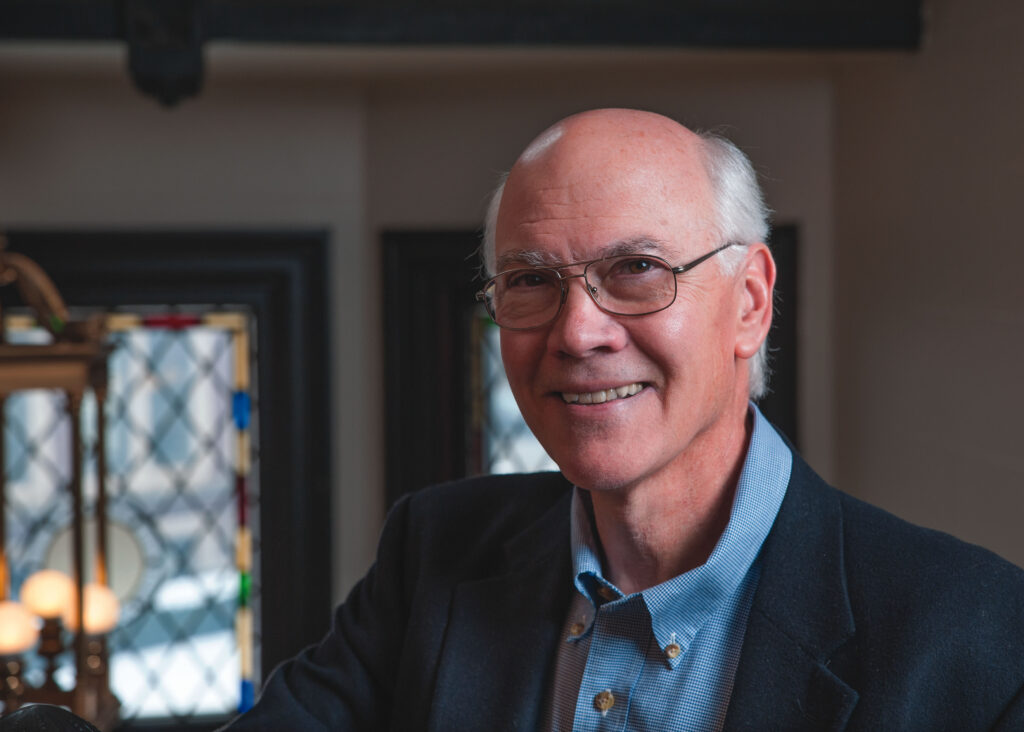
Professor Gary Deimling, valued teacher and mentor to generations of CWRU sociology majors and graduate students and valued colleague to faculty across the university, announced his decision to retire at the end of the spring term (effective June 30, 2022). Deimling has been widely appreciated as a welcoming and affirming collegial presence, as well as someone with historical and critical perspectives on university processes.
After earning his PhD from Bowling Green State University in 1976, Gary taught at John Carroll University until 1980, when he joined the Benjamin Rose Institute on Aging’s Blenkner Research Institute. In 1993, he joined CWRU’s Department of Sociology, where he has developed two parallel and complementary areas of research: stress associated with caring for older adults with mental impairment and the long-term impact of surviving cancer. These two areas have in common the orientation that while illness can be a profound stressor, responding to it can be an opportunity for intense personal growth.
Deimling’s early research focused on adaptation of older adults to the stresses associated with illness and the impact of caring for frail older adults, especially those with dementia. This work entailed developing new multi-dimensional measures of family caregiver strain. In 2002, he was named the Outstanding Researcher in the State of Ohio by the Ohio Research Council on Aging for his work on Alzheimer’s patients and their families.
In the early 1990s, Deimling expanded his work to include a second focus, issues surrounding the quality of life of older adult cancer survivors. A major emphasis of his work has been how the development of “survivor identity” can buffer individuals from some of the more profound effects of cancer. This work was supported with grants by the National Cancer Institute, which provided approximately $3 million in funding from 1998 through 2008. For this work, Deimling was honored for Outstanding Contribution to the Field of Cancer Survivorship Research by the National Cancer Institute (2004). Two years later, he received the Trish Greene Quality of Life Award from the American Cancer Society for excellence and innovation in improving quality of life for people with cancer. From 2007 to 2009, Deimling held the Armington Professorship, a rotating professorship that supports a faculty member whose professional activity and personal character exemplify important values, in particular individual initiative tempered with concern for the rights of others.
Over the years, Deimling has mentored and encouraged the contributions of many graduate, undergraduate, and even high school students on his research projects. During his tenure on the CWRU faculty, Deimling has made significant contributions beyond sociology. He has secondary appointments in the School of Medicine as Professor of Medical Research Oncology and Faculty Fellow of the Case Comprehensive Cancer Center. Within the college, he served in a number of important committee and administrative roles, including two terms as acting chair of sociology. On May 5, the Department of Sociology celebrated Deimling’s career, colleagueship and friendship with a special reception.
Although formally retiring from the faculty, Deimling has made it clear he is not retiring from his academic work. In May, he received a contract for his new research monograph, Cancer Survivorship in Later Life, from Oxford University Press. He plans to bring to fruition not only the book but also a series of related articles. His collaborative work, especially with some of his graduate students, will likely continue for some time, along with new pursuits.

